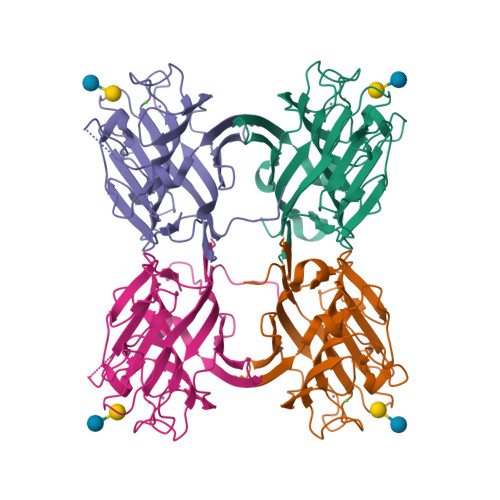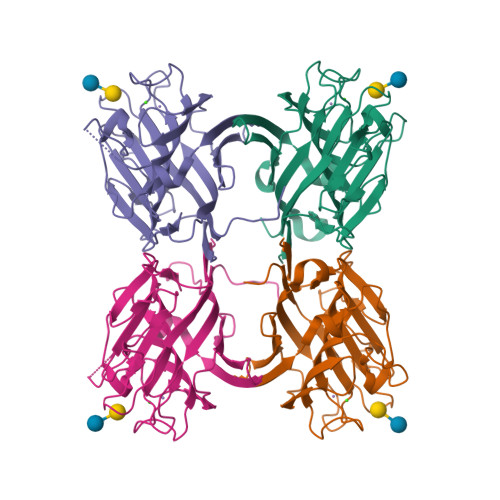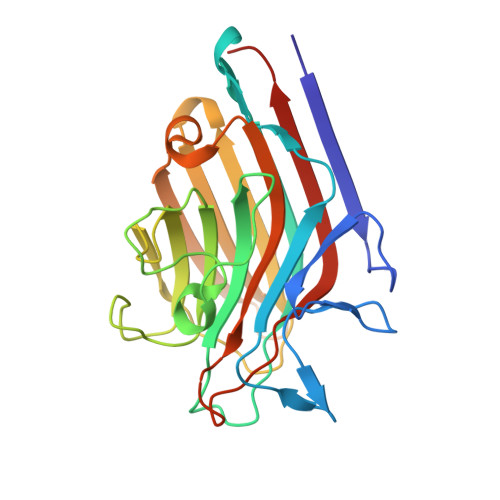Structural characterization of a Vatairea macrocarpa lectin in complex with a tumor-associated antigen: A new tool for cancer research.
Sousa, B.L., Silva-Filho, J.C., Kumar, P., Graewert, M.A., Pereira, R.I., Cunha, R.M., Nascimento, K.S., Bezerra, G.A., Delatorre, P., Djinovic-Carugo, K., Nagano, C.S., Gruber, K., Cavada, B.S.(2016) Int J Biochem Cell Biol 72: 27-39
- PubMed: 26751394
- DOI: https://doi.org/10.1016/j.biocel.2015.12.016
- Primary Citation of Related Structures:
4WV8 - PubMed Abstract:
Legume lectins are the most thoroughly studied group of lectins and have been widely linked to many pathological processes. Their use as immunohistochemistry markers for cell profiling and cancer diagnosis have made these molecules important tools for immunological studies and have stimulated the prospection and characterization of new lectins. The crystal structures of a recombinant seed lectin from Vatairea macrocarpa (rVML) and its complexes with GalNAcα1-O-Ser, GalNAc and α-lactose, have been determined at 1.90, 1.97, 2.70 and 1.83Å resolution, respectively. Small angle X-ray scattering and calorimetry assays have confirmed the same pH stable oligomerization pattern and binding profiles proposed for its wild-type counterpart. In silico analyzes have explored the potential of this recombinant lectin as new tool for cancer research through a comparative profile with other legume lectins widely used for cancer diagnosis and prognosis. The results suggest the recognition of specific epitopes exhibited on different cancer cells as a process that relies on the disposition of hydrophobic clusters and charged regions around the lectin carbohydrate-binding site, favouring the anchorage of different groups in the antigen boundaries, highlighting the different potential of each analyzed lectin. In conclusion, the experimental results and comparative analysis show that rVML is as a promising tool for cancer research, able to bind with high affinity specific tumor-associated antigens, highly stable and easily produced.
Organizational Affiliation:
Departamento de Bioquímica e Biologia Molecular, Universidade Federal do Ceará, Av. Mister Hull s/n, Bloco 907, Box 6043, 60440-970, Fortaleza, Ceará, Brazil.




















